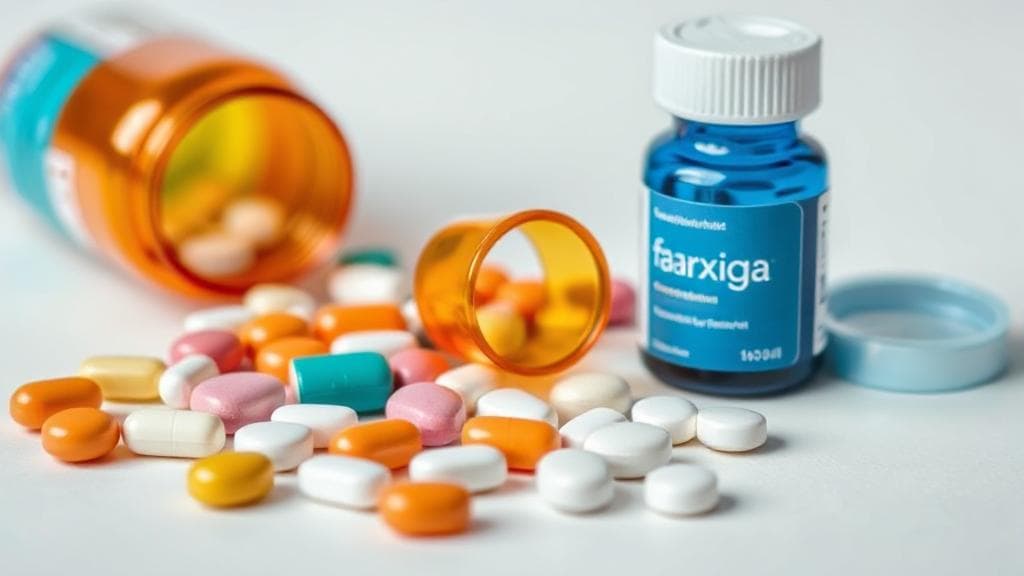Understanding Farxiga and Drug Interactions
Farxiga (dapagliflozin) is a medication primarily used to manage type 2 diabetes, heart failure, and chronic kidney disease. It belongs to a class of drugs called SGLT2 inhibitors, which work by helping the kidneys remove glucose from the bloodstream through urine. Drug interactions can alter how medications work or increase the risk of serious side effects, making it crucial to understand which medications to avoid or use with caution.
Primary Medications to Avoid or Monitor
1. Diuretics
Examples:
- Furosemide (Lasix)
- Hydrochlorothiazide (HCTZ)
- Spironolactone (Aldactone)
Diuretics, often called "water pills," can increase the risk of dehydration and low blood pressure when combined with Farxiga, as both medications promote fluid excretion.
2. NSAIDs (Non-Steroidal Anti-Inflammatory Drugs)
- Ibuprofen (Advil, Motrin)
- Naproxen (Aleve)
- Celecoxib (Celebrex)
- Diclofenac (Voltaren)
NSAIDs can affect kidney function and may increase the risk of kidney damage when used with Farxiga.
3. Insulin and Insulin Secretagogues
- Insulin (all types)
- Sulfonylureas
- Glimepiride (Amaryl)
- Glipizide (Glucotrol)
- Glyburide (DiaBeta)
"Patients taking ACE inhibitors or ARBs alongside Farxiga should monitor their blood pressure closely and consult their healthcare provider about potential dose adjustments." - American Diabetes Association
Special Considerations
Contrast Dyes
If imaging studies requiring contrast dyes are needed:
- Stop Farxiga 24 hours before the procedure
- Wait 48 hours after the procedure
- Resume only after kidney function is verified as stable
Herbal Supplements and Alcohol
- St. John's Wort may reduce Farxiga's effectiveness
- Limit alcohol consumption due to:
- Increased risk of dehydration
- Potential for low blood sugar
- Added stress on the kidneys
Risk Mitigation Strategies
To minimize potential drug interactions:
- Keep an updated list of all medications
- Inform all healthcare providers about Farxiga use
- Use a single pharmacy when possible
- Report any unusual symptoms promptly
Emergency Warning Signs
Seek immediate medical attention if you experience:
- Severe dehydration symptoms
- Signs of ketoacidosis
- Serious allergic reactions
- Severe kidney problems
Monitoring and Resources
Regular consultations with healthcare providers are crucial for:
- Blood tests
- Blood pressure monitoring
- Kidney function tests
For more detailed information, visit:
- FDA's official page on Farxiga
- American Diabetes Association
- National Institute of Diabetes and Digestive and Kidney Diseases
- MedlinePlus
Remember that individual responses to medications can vary. Always consult with your healthcare provider before making any changes to your medication regimen.
